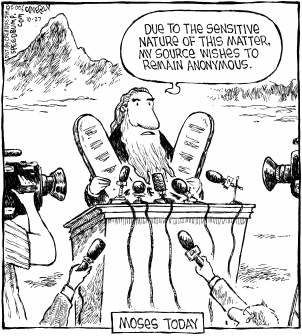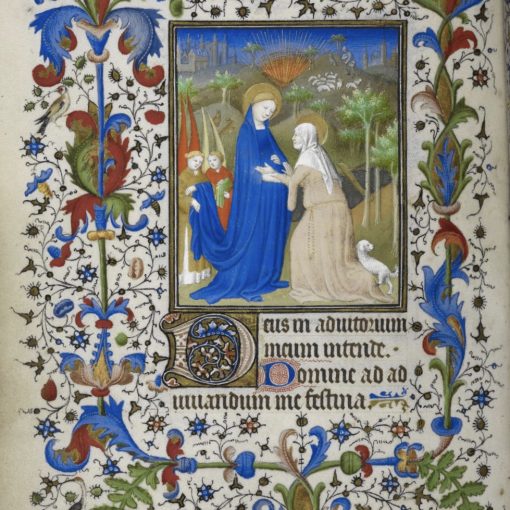Ok, that was a bit misleading. I am not suggesting JI Packer is infallible, rather in this interview with the best-selling author of Knowing God from last week’s Washington Post he speaks about the infallibility of scripture and a few other things as well. Packer’s comments on infallibility confused me at first.
Q: On a radio program, you explained why different Bible translations have different endings to the Gospel of Mark. How does this jibe with the inerrancy of God’s word?
A: The inerrancy of Scripture applies to the material as prepared for publication. I’m saying that quite deliberately because I want to allow the editor in. In some Old Testament books, it’s very evident that an editor has been at work. That’s quite all right. It’s part of the process.
Hunh? “The inerrancy of Scripture applies to the material as prepared for publication”? That sounded to me as though he was suggesting that Zondervan or Crossway was somehow being inspired by God as they put together their study Bibles. The term “prepared for publication” is what threw me. He was, in fact, talking about allowing for the inspiration of the ancient editors or redactors.
Q: But some people believe that every word written and every “i” dotted came strictly from the hand of God to the author. At the other extreme, atheists and liberal Christians say, “No one knows what’s true in the Bible because it’s been changed so much.” How do you see this?
A: I’m saying that an editorial process that is preparing the material for publication counts as part of the inspiring process whereby God, in his sovereignty, gave every word. Some people ask for trouble by not allowing for the reality of editorial processes. The editorial process is very important for preparing the work for public consumption. It’s part of the inspired process.
There are a couple of things that I note in this second answer. The first is that he is now speaking of “inspiration” of the text rather than “inerrancy.” Judging from his earlier answer it seems that he is using the terms interchangeably. (I am not familiar enough with his work to know his precise usage.) I myself would make distinctions, or at least a distinction in how many use the term “inerrancy,” much in the way that the questioner suggestions, every jot and tittle being moved by the very hand of God.
I find this notion of inspiration far more reasonable and, in fact, necessary if one is to have any hope of not despairing in the face of the various manuscript traditions that we (now) know exist. It is by using this analogy that I managed to open up my father to the notion that the Pentateuch was composed of various sources. The redactional process, I suggested, was analogous to the process of canonization on the larger scale, the selection of which epistles and gospels should be included in the New Testament.
But it does leave the nagging question of when did the Spirit cease to lead the community of faith in its editorial work? What is the standard by which we can objectively say “the canon has closed” and can never be reopened or emended? This is not a new question, by any means. When did the spirit of prophecy cease, has long been a point of debate among both Jewish and Christian communities. (Targum Ruth answers by telling us that “The tenth [eschatological] famine is due to come, not a famine of bread nor a thirst for water, but to hear the word of prophecy from the Lord.”) And the topic of inerrancy has cropped up regularly on the biblioblogs, see for example, Chris Tilling’s call in 2007 for new understanding of inerrancy (and from whence I borrowed the comic above). In fact, Chris’ discussion was almost exactly two years ago and led to a very thorough discussion with John Hobbins and others.
So I do not expect to come to any conclusions here, nor be anything as thorough in my comments or ruminations as Chris and John. I will add one final note. The interview with Packer also touches upon the current conflicts within the Anglican Communion. Packer is an Anglican priest and his church has cut off its ties with the official church within Canada, the Anglican Church in Canada. While most see the debate as being a question of sexual practices, it is, from the perspective of conservatives, a question of the authority of Scripture. Thus Packer’s views on inerrancy and inspiration are particularly relevant. I was pleased to note that as his parish goes into litigation with the national church their emphasis is not upon retaining the property.
I’m glad to say the congregation — between 800 and 1,000 attend regularly on the Lord’s day — knows we may lose the property. We’re prepared to lose the property rather than losing the Gospel.
If you feel strongly enough to leave the offending church you should be willing to forego the physical comforts as well, even if they might be said to be “rightly” yours. Matt. 5:40 and other such passages come to mind.






7 thoughts on “Infallible J.I. Packer”
i have always thought that it’s a big semantic leap to go from infallible to inerrant to inspired, but when push comes to shove it does end up into the inspired category. you cannot have an infallible text without an infallible editorial process or else you are simply lying to suggest that the text is infallible when we know from all evidence that it is surely not.
i suspect that if you push packer to revise the former statement in terms of the latter it would get confusing which raises your question. why do we not include the didache, why do other inerrantists not include intertestamental literature as most christians in the world do. why not include the first letter of clement which clearly predates other canonized material? and so on…
Does the Roman Catholic church not follow Jerome’s teaching, as cited in the Book of Common Prayer (ECUSA)?
The implication of Jerome’s statement, it seems to me, is that the Deuterocanon/Apocrypha are not viewed as having the same level of inspiration/authority.
I chose to leave the congregation. I was all too aware that Packer’s criticism of the TNIV and the translators of the TNIV was not grounded on fact. I was uncomfortable with that.
In addition, the Anglican Church of Canada had ordained women since 1976, which was long before Packer came to Canada and came to this congregation. For the last 15 years, Packer and the leadership of this church has held a view which was in contradistinction to the Anglican Church of Canada.
It was during my observation of Packer’s leadership in the split from the ACC, that I decided that I no longer wanted to be a part of the evangelical movement as defined by Packer.
Sue you are certainly closer to the matters, far closer, than am I. Thank you for sharing your insight.
Inerrancy and jots and tittles are small potatoes when compared to the huge work of re-interpreting holy writ to meet the needs of each new generation. I yam what I yam!
I started off more or less in agreement with the majority, lead by the clergy and Packer. But eventually I was able to see the whole thing in context and I was uncomfortable with it.
I especially wonder if you could comment on Packer’s phrase “preparing the material for publication” Is he refering to some aspect of scribal practice?
I assume Packer is referring to the process of redaction that most scholars assume occurred with the composition of most biblical books. Most clearly seen in the Pentateuch, we also find it in the Deuteronomic History and so on…